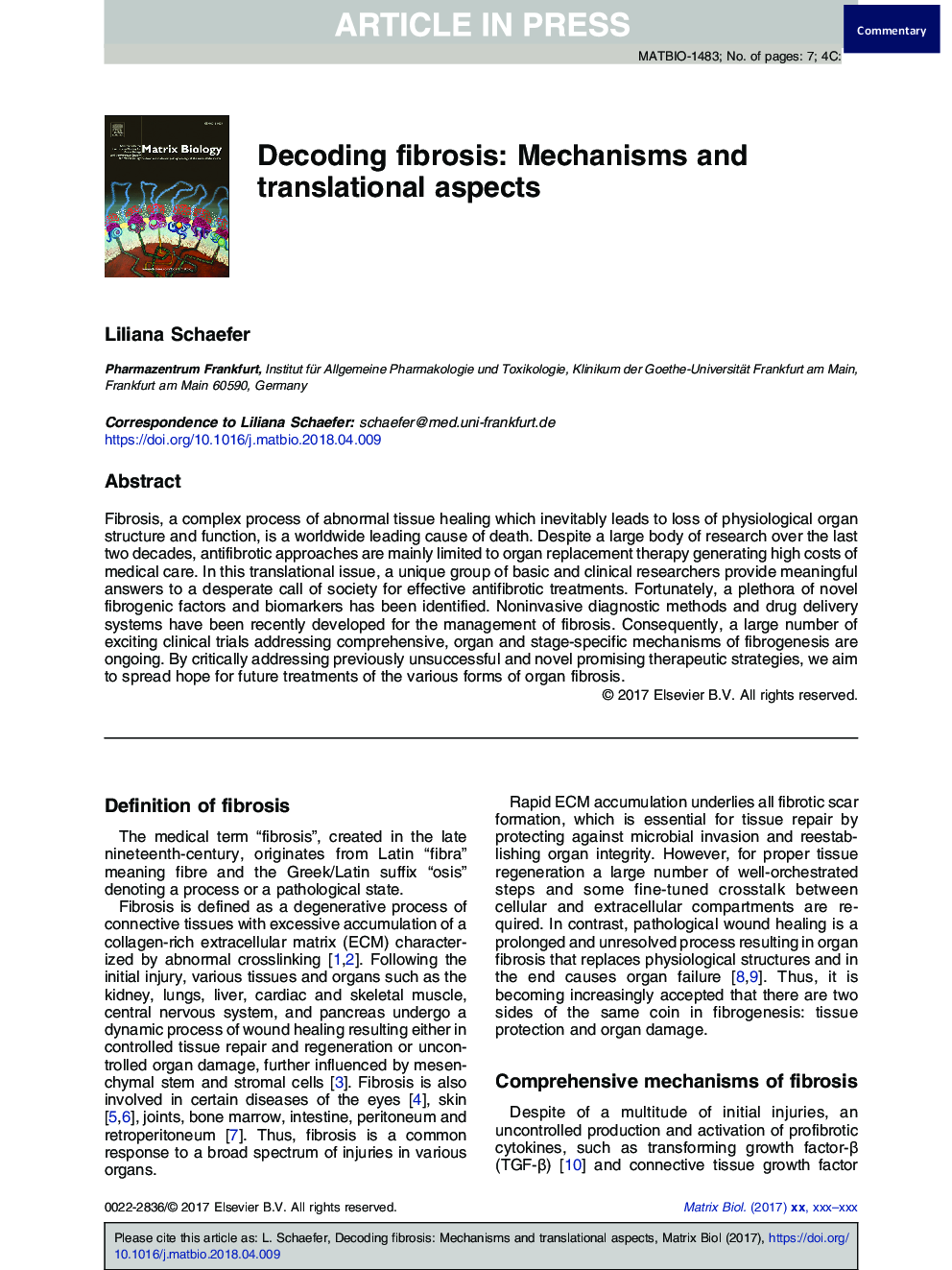| Article ID | Journal | Published Year | Pages | File Type |
|---|---|---|---|---|
| 8454971 | Matrix Biology | 2018 | 7 Pages |
Abstract
Fibrosis, a complex process of abnormal tissue healing which inevitably leads to loss of physiological organ structure and function, is a worldwide leading cause of death. Despite a large body of research over the last two decades, antifibrotic approaches are mainly limited to organ replacement therapy generating high costs of medical care. In this translational issue, a unique group of basic and clinical researchers provide meaningful answers to a desperate call of society for effective antifibrotic treatments. Fortunately, a plethora of novel fibrogenic factors and biomarkers has been identified. Noninvasive diagnostic methods and drug delivery systems have been recently developed for the management of fibrosis. Consequently, a large number of exciting clinical trials addressing comprehensive, organ and stage-specific mechanisms of fibrogenesis are ongoing. By critically addressing previously unsuccessful and novel promising therapeutic strategies, we aim to spread hope for future treatments of the various forms of organ fibrosis.
Keywords
DMDTGF-βCTGF/CCN2COMPT helperLRP1PDGFECMIPFMMPROSADAMinflammationWound Healingtransforming growth factor-βa disintegrin and metalloproteinaseDuchenne muscular dystrophyLungsendoplasmic reticulumConnective tissue growth factorplatelet-derived growth factoridiopathic pulmonary fibrosisFibrosisExtracellular matrixmatrix metalloproteinaseCartilage oligomeric matrix proteinlow density lipoprotein receptor-related proteinSkinLiverKidneyReactive oxygen species
Related Topics
Life Sciences
Biochemistry, Genetics and Molecular Biology
Cancer Research
Authors
Liliana Schaefer,
